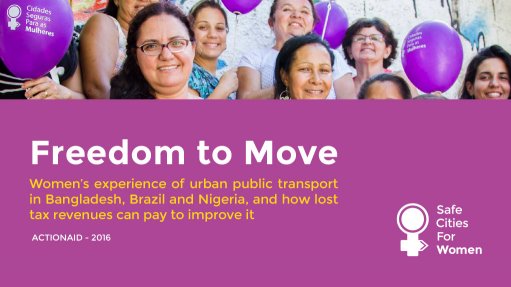
Millions of people use public transport every day; it is the lifeblood of cities and the most efficient way to move people. Over half the population, however, are marginalised in these systems as the specific needs of women and girls are not catered for; leaving them vulnerable to violence and less able to fully access their rights. For women and girls worldwide, the freedom to move safely around cities is greatly restricted, whether by gender-blind planning and design of transport infrastructure or by social and cultural norms that tolerate violence towards women.
Poor street lighting, a lack of buses and stops, all-male transport staff, lack of public toilets and inadequate policing has created an environment where sexual violence against women in the city can thrive. Women and girls living in poverty are even more affected and exposed to this violence. It is reported that in São Paulo, Brazil, a woman is assaulted in a public space every 15 seconds, whereas 84% of Bangladeshi women surveyed said they have experienced insults or sexual comments whilst travelling.
This report looks at the quality of public transport provision for women and girls across three major cities: Dhaka (Bangladesh), Abuja (Nigeria) and São Paulo (Brazil). Bus services were examined as they were the most readily comparable component of public transport. This report analyses the issue of women’s security on public transportation and offers solutions for bus systems which facilitate women’s freedom to move. Currently, the Governments of Bangladesh, Nigeria and Brazil are failing to provide safe, secure and reliable services for women and girls. Safe public transportation systems are a necessary prerequisite for women and girls to be able to exercise their right to freedom of movement and their right to enjoy and use their cities’ services without the threat of sexual violence or harassment.
Report by ActionAid